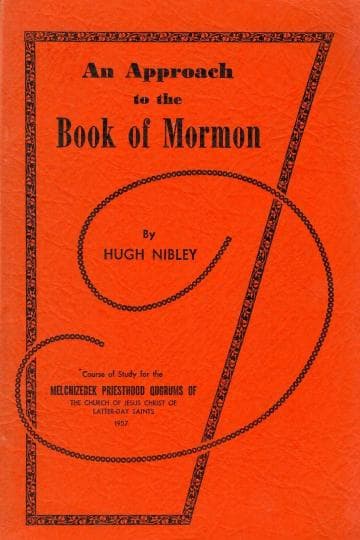Manual
30 Lessons

Abstract
The discovery of the Dead Sea Scrolls has brought to light the dual nature of ancient Judaism, in which “the official and urban Judaism” is pitted against the more pious Jews “intent on going back to the most authentic sources of Jewish religion . . . in contrast to the rest of backsliding Israel.” (Moscati.) The official Judaism is the work of “intellectuals” who are not, however, what they say they are, namely seekers after truth, but rather ambitious men eager to gain influence and followers. The Book of Mormon presents a searching study of these people and their ways. There is the devout Sherem, loudly proclaiming his loyalty to the Church and his desire to save it from those who believe without intellectual proof. There is Alma, who represents the rebellion of youth against the teachings of the fathers. There is Nehor, the Great Liberal, proclaiming that the Church should be popular and democratic, but insisting that he as an intellectual be given special respect and remuneration. There is Amlici, whose motive was power and whose tool was intellectual appeal. There is Korihor, the typical Sophist. There is Gadianton whose criminal ambitions where masked by intellectual respectability. For the Old World an exceedingly enlightening tract on the ways of the intellectuals is Justin Martyr’s debate with Trypho, and also an interesting commentary on the Book of Mormon intellectuals whose origin is traced directly back to the “Jews at Jerusalem.”
Manual
30 Lessons
Items in the BMC Archive are made publicly available for non-commercial, private use. Inclusion within the BMC Archive does not imply endorsement. Items do not represent the official views of The Church of Jesus Christ of Latter-day Saints or of Book of Mormon Central.